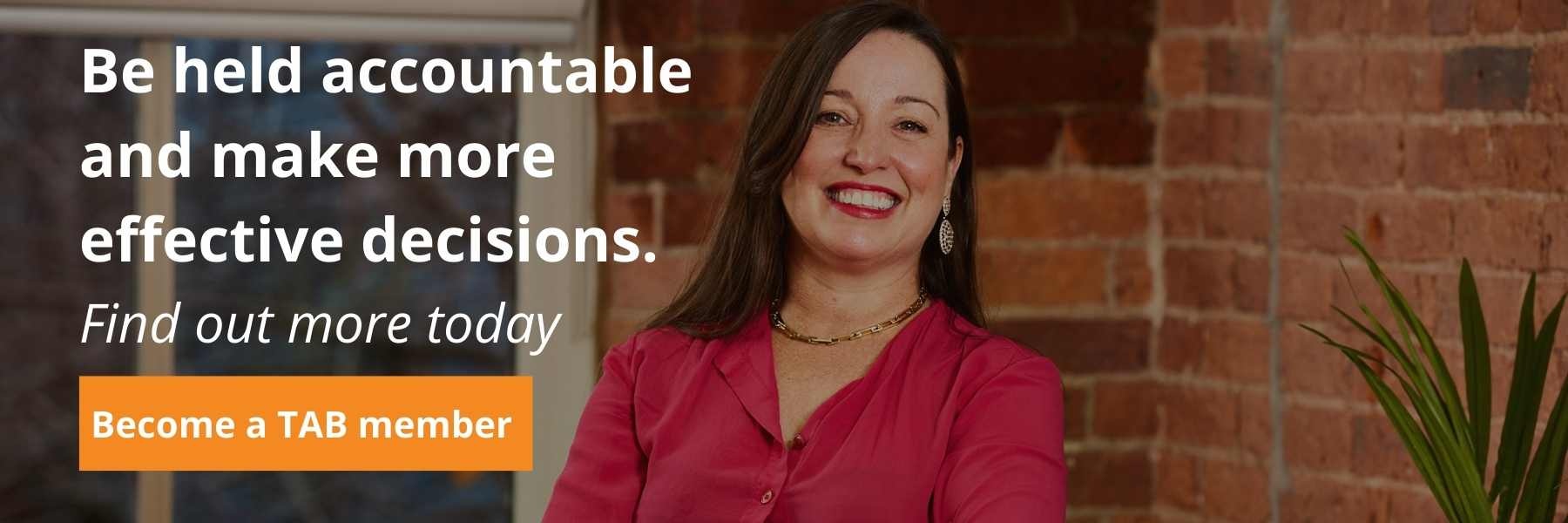
Nine characteristics of a good finance director for SMEs
by The Alternative Board (UK)
Listen to Audio Version:
Are you recruiting a finance director?
When SMEs first start out, we either handle the finances ourselves or outsource all the financials to an accountant.
However, as SMEs continue to experience excellent business growth, there becomes a need for a finance director to sit in-house.
This decision can be a massive weight off the business owner’s shoulders, freeing up time for them to concentrate on the business's strategic planning and larger vision.
Saying this, it’s not a recruitment task to be taken lightly. There are many things to consider, from finding the right hire to weighing up the cost of bringing somebody in.
To help, we’ve compiled a handy list of nine things to consider when recruiting a finance director.
What is a finance director?
Before we get into the good stuff, here is one small thing to clear up; what is the role of a finance director?
In the world of SMEs, the line between the role of the Finance Controller (“FC”) and the finance director (“FD”) can become a bit blurred. A finance director is responsible for directing the day-to-day operations of a business financial operations. In contrast, a finance controller is responsible for looking after the accounting function once the business owners and stakeholders have made the decisions.
Quite often, a finance director will sit on a board of directors or senior management team, so it’s important that you find the right person.
Nine characteristics to look for when recruiting a finance director
1. A great communicator
There can be a stereotype of finance directors not being great at communicating, but it is a crucial part of the role. The best finance directors must be great communicators. Due to the technical nature of their role, the use of accounting language can risk a lot of misinterpretations, so the need to communicate concepts and key trends to non-finance colleagues within the business cannot be understated.
2. Strategic
A good finance director needs to have the strategic capability to understand the bigger dynamic of the business beyond the numbers. This means they have to be able to see the strategic journey and vision; they have to be comfortable with financial losses in the earlier stages of business growth, which may go against their natural inclinations.
3. A strong decision maker
They are expected to make decisions. How many they get right will establish if they are any good. However, they must take responsibility and be seen within the organisation to take the lead.
4. Innovate
They must be able to think “outside of the box” and have the knowledge and experiences to be creative in their thinking.
5. Resourceful
They must be able to adapt to many different functions or activities. The FD may have to step into other roles, e.g. Interim Managing Director. They must be commercially aware and understand the other business areas, such as HR, Strategic direction, and facilities management, to name a few.
6. Energetic
They must be seen to have energy and passion for the organisation and must be looking for the organisation to succeed. They must be strong and active within the organisation by constantly looking for ways to improve.
7. Challenging
The FD needs to balance ambition with reality and needs to be the “wise counsel to the board without allowing entrepreneurial flair to become suppressed.”
8. Truthful
The financial information produced must stand up to scrutiny, and all stakeholders expect honesty and a “nothing to hide” attitude.
9. Standards
It is expected that standards (ethics) must be maintained, and the FD should be seen as the “Champion” of the organisation's culture and ensure that good corporate governance is maintained.
Three top questions when recruiting a finance director
Aside from seeking these characteristics in a finance director, here are a few more top-line considerations during recruitment.
1. Is it a finance director you need?
You are unlikely to need a finance director unless you’ve already got a finance controller who would typically do day-to-day finance in your business. So, before recruiting for a finance director, ensure you’re ready, and it’s not someone a level below you need.
2. Could your finance director be part-time?
Make sure you have considered how many hours you need from a finance director. It might be that you can recruit one part-time through organisations such as The FD Centre, the UK's Number 1 provider of part-time finance directors.
3. What will the role look like?
A finance director is often involved in more than just the numbers. So you’ll need a good idea of what they’ll be getting involved in; will they be considering acquisitions or mergers, considering exit plans, and contributing to strategy?
....
Conclusion
Recruiting the right finance director is a big step for any business, and these characteristics and considerations should leave you in a great position to get started.
At TAB, we empower SME business owners to thrive together in their recruitment. By sitting around our advisory boards, leaders are challenged to make more effective decisions in all business areas and are held accountable by the others around the table.
Related articles

Rishi’s balancing act
Ed Reid, Managing Director of TAB (UK), discusses the latest updates the Chancellor of the Exchequer, and how it will impact entrepreneurs.

Jump when you see the rocks
Ed Reid, Managing Director of TAB UK, talks about the bravery it takes to set up and run your own business.

The pace of change accelerates
Ed Reid, managing director of TAB (UK), talks about the pace of change.






